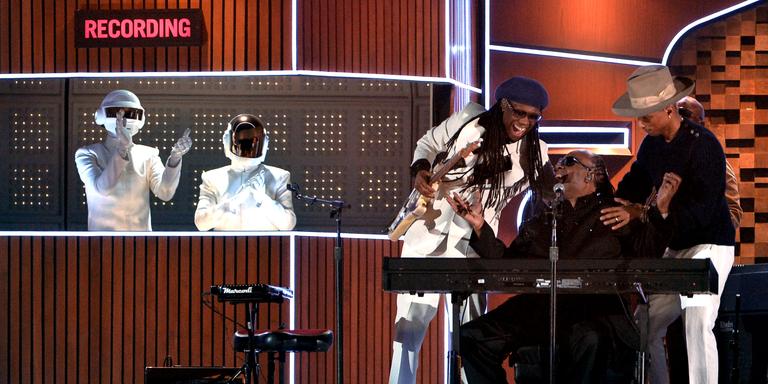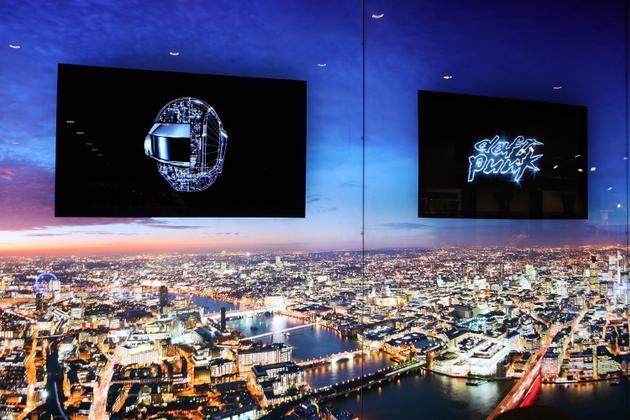


Daft Punk's New World odyssey
Long Read'How Daft Punk got lucky' (1/5). By conquering America, the French duo achieved a rare feat. In 2014, the album 'Random Access Memories' won five Grammy Awards and catapulted Daft Punk to global pop stardom.
Contact with mankind was re-established on February 26, 2013. That day, Daft Punk's Facebook page ceased to be inactive by changing its cover picture. A two-headed helmet, half-chromed, half-gilded, now stood out on a black background. At the bottom right was the logo of their new record label, Columbia, named after the United States's allegorical female personification. The textless message was received instantly, and the internet went wild. Pop culture's most famous duo of robotic musicians was up to something. Ever since they were children, these prodigies, the envy of the electro world, had been dreaming of the New World. They wanted America, and they were going to get it.
Some 11 months after this post, Parisians Thomas Bangalter and Guy-Manuel de Homem-Christo were honored at the Grammy Awards, the Oscars of the music industry in Los Angeles, in front of 30 million television viewers. Daft Punk triumphed with their fourth studio album, Random Access Memories, reaching the number one spot in some 12 countries, a feat never before achieved by a French artist or group. Like the Empire's stormtroopers in Star Wars, they came dressed in white for the ceremony. Their faces were hidden in helmets known by every Earthling. It was an ambiguous trademark since it allowed them both to expose themselves and to protect their privacy.
In the space of 15 years, the duo had already left their mark on the history of popular music by bringing an underground culture – electro – to the ears of the mainstream at a rate of one record every four years. Their seminal album Homework (1997) established house music and techno, two styles built around rhythmic loops that emerged in the US in the 1980s. They followed it up with the retro-futuristic Discovery (2001), featuring the neo-disco hit "One More Time" and then with the unloved and misunderstood Human After All (2005). Calling it quits there would have been inconceivable.

In 2011, the technophiles made a radical break with their modus operandi. They abandoned the autarky of the "home studio" to have other musicians, those of the London Philharmonic Orchestra, perform the soundtrack they composed for Tron: Legacy (2010). This sci-fi film produced by Disney gave them a taste of the market they coveted. France had always been too small for them. Their destiny now lay in California and New York. "We see music first and foremost as entertainment," Bangalter told Le Monde back in 2001, an ideal declaration of intent for success in America. At ease in English, the Frenchies split their lives between Paris and Los Angeles.
You have 86.86% of this article left to read. The rest is for subscribers only.
